When I first met Oshihal Hussain, he took me aback with his valour and staunchness to work for the environment. Here came a young chap hardly of 17 or 18 years with a bunch of younger kids to sit for a meeting on how to form what today is popularly known as 'Eco Youth Club'. My very first week at the beautiful village of Sepi, which is also the dissolving point of Sandakphu trek, was honoured by these little feet approaching me.
What made a juvenile mind leave all the attractions of the humanly world and grow a passion for picking up waste from the unkempt roads is still beyond me. Hussain however, seems to be fairly clear about this. After a workshop on waste management and segregation given at “his” ( he makes that a point) Rimbick High School, all he could think it seems was about the plastic wrappers he saw every day as he walked up the roots and boulders from his village named Daragaon to Rimbick. He made no delay in personally contacting us with his trouble and out of the blue, it was decided that a club shall be formed.
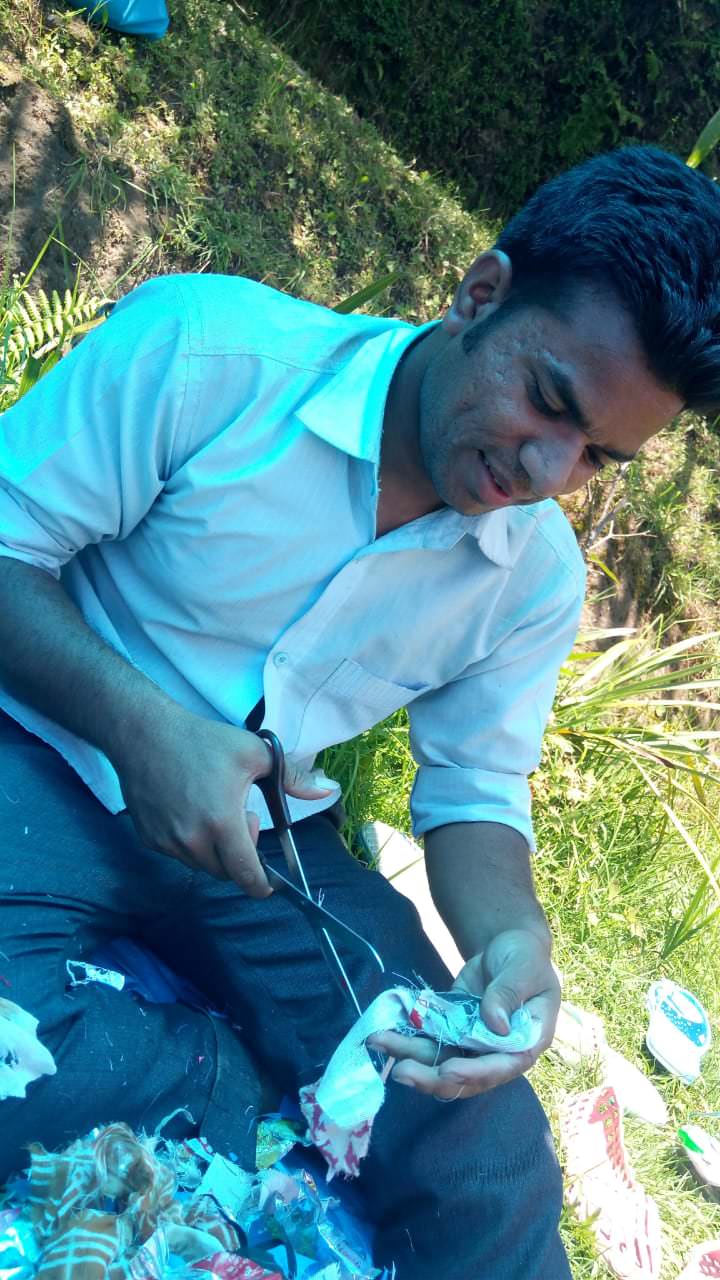
Next in line was Abhisek, a future man of arms and uniform. His friends call him 'the living dustbin' for he picks up all their popular chocolate and chips wrappers and quietly tugs them inside his bag. Abhisek, having this innate love for his motherland and village, found it shocking when he participated in the clean-up organized at his school to give the kids a reality check on how much waste is generated in our day to day lives. Something had to done against their newly recognized menace; I could see the lines on his forehead growing stronger.

These two comrades managed to accumulate heads of 10 and the first Eco Youth Club of the Sandakphu trail was thus formed. What makes me respect them every day a little more is that with each passing day they are not only growing in number but also their “green” principals. The time when this club was formed, clouds were ushering their rains so hard that at times it would not be possible to peep out of the window. But what is rain in front of these young warriors! Every Saturday, no matter what weather forecast lied ahead, they have their clean-ups. Just to be precise, the clean-up starts from their own village, Daragaon, and courses up to Sepi, a strenuous 4 km walk uphill. Every plastic wrapper, every cloth piece, every rubber strand; with gloves in their palms, masks on their faces and sacks on their backs, nothing escapes their eyes. I have personally been with them in a few clean-ups and got startled to see how they never lost smiles from their innocent faces. Sometimes they slipped, sometimes sticks went through the rubber gloves into their fingers, sometimes the sacks were too heavy to bring up; never did they grumble about the kind of murky work they got themselves into. The only complaint was, “ Momo di, log kachra kyon bahar aisa phekta hai?”. (Translation: Momo Di, why do people throw waste indiscriminately on the roads?) Even Momo Di is still looking for that simple answer!

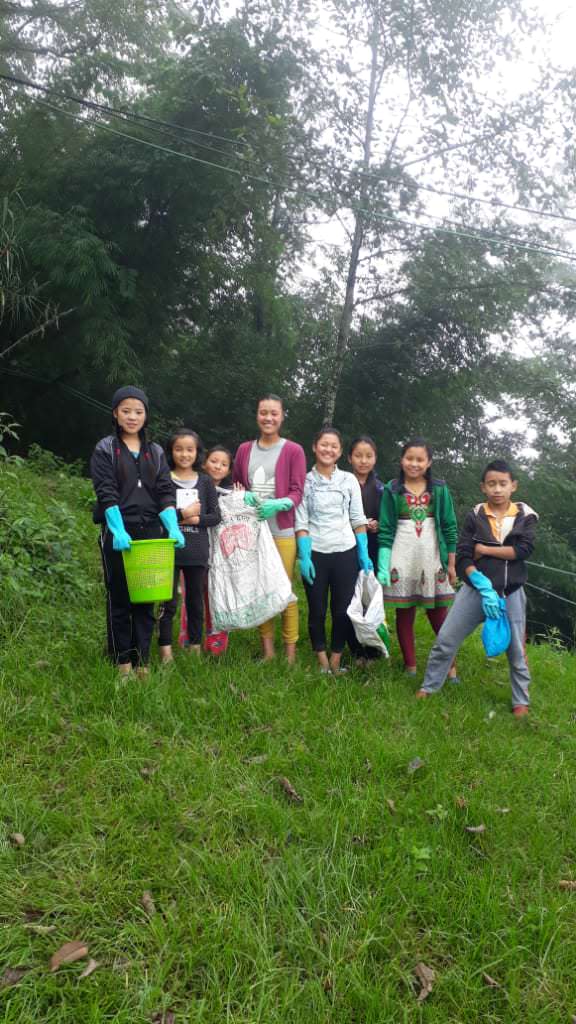
So what happens to the waste these green-getters collect? Their work is not over there. All the sacks are then emptied in a central location and then they sit to segregate the waste. Right after one demo, they got a hang of which waste can be recycled and which waste has no place safe to go. Singing merry Nepali songs and fooling around with each other, one after the other bottle brick, one solution to plastic waste is given birth. Daragaon Eco Youth Club is famous for making the best quality bottle bricks. With the amount of regular practice they take in making them, they can surely take formal classes elsewhere. These bottle bricks have been used in many places. The Block Development Office has a wall constructed out of bottle bricks where the labour of these feeble hands is forever etched. Similarly, there is a bench at Rimbick Primary Schools that owes its stability to the bottle bricks contributed by them.

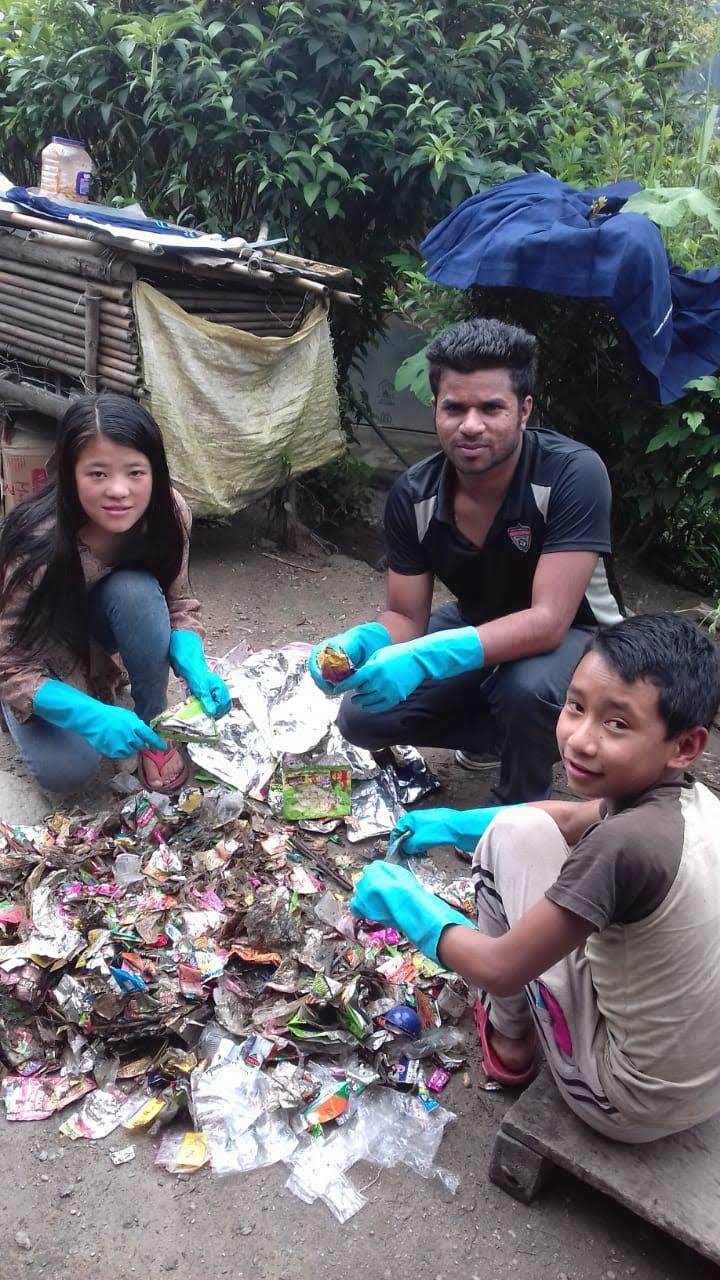
Kayreina, a young maiden of the group, has managed to drag her mother into the business of making eco-pillows using the plastic generated in her own household. Her eco-pillows turn out to be just as elegant as she is. The younger ones of the club fight an everyday battle trying to convince their parents why on a perfect Saturday morning they do not spend time with their families or even watch T.V, instead choose to pick up waste thrown by others. Few others study a little extra every Friday eve so that they can escape the next morning without much reproof. When neighbours ask them why they do what they do, “ Jaisa aapko kachra karne mei mazzaa aata hai, humko uthane main”, ( Translation: Like you enjoy generating waste, we like cleaning them up) is their unpretentious answer.
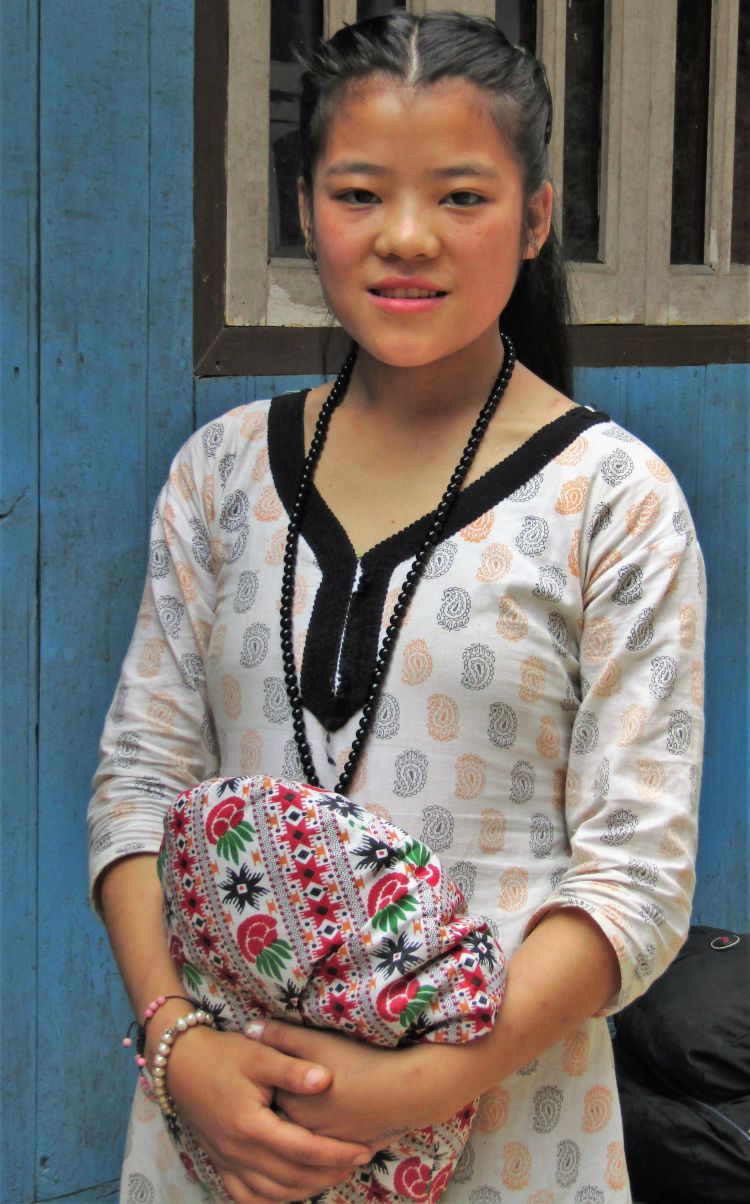
What do they get in return for their services? Few hugs and appreciation from people like us who know the joy in the pain of clearing waste. Occasionally, they get invited to programs where a certificate of appreciation is handed over to them. To put in Abhisek’s words what they truly get out of it is a better history for their village. They are truly my Eco Warriors, doing a thankless, nameless job for the generations to come.
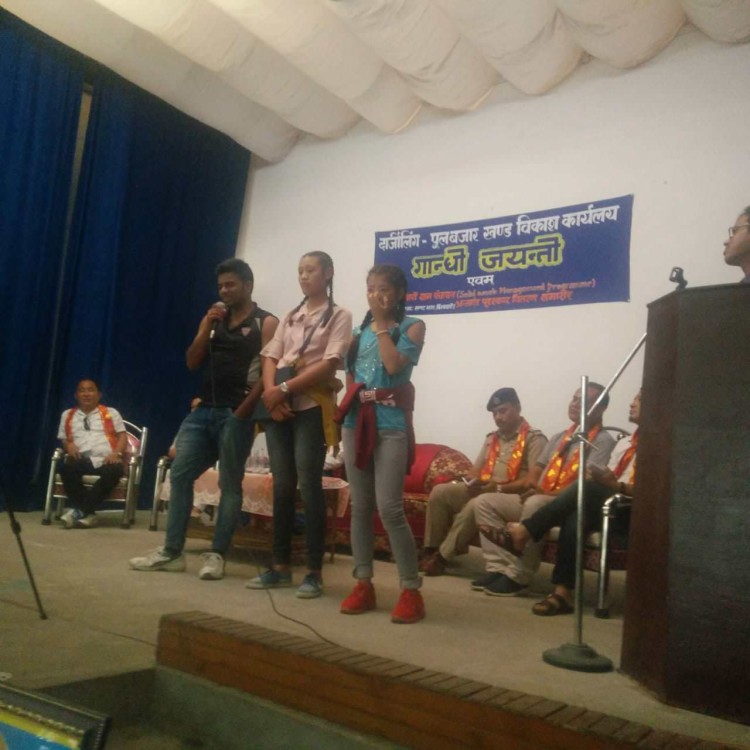

What made a juvenile mind leave all the attractions of the humanly world and grow a passion for picking up waste from the unkempt roads is still beyond me. Hussain however, seems to be fairly clear about this. After a workshop on waste management and segregation given at “his” ( he makes that a point) Rimbick High School, all he could think it seems was about the plastic wrappers he saw every day as he walked up the roots and boulders from his village named Daragaon to Rimbick. He made no delay in personally contacting us with his trouble and out of the blue, it was decided that a club shall be formed.

Next in line was Abhisek, a future man of arms and uniform. His friends call him 'the living dustbin' for he picks up all their popular chocolate and chips wrappers and quietly tugs them inside his bag. Abhisek, having this innate love for his motherland and village, found it shocking when he participated in the clean-up organized at his school to give the kids a reality check on how much waste is generated in our day to day lives. Something had to done against their newly recognized menace; I could see the lines on his forehead growing stronger.

These two comrades managed to accumulate heads of 10 and the first Eco Youth Club of the Sandakphu trail was thus formed. What makes me respect them every day a little more is that with each passing day they are not only growing in number but also their “green” principals. The time when this club was formed, clouds were ushering their rains so hard that at times it would not be possible to peep out of the window. But what is rain in front of these young warriors! Every Saturday, no matter what weather forecast lied ahead, they have their clean-ups. Just to be precise, the clean-up starts from their own village, Daragaon, and courses up to Sepi, a strenuous 4 km walk uphill. Every plastic wrapper, every cloth piece, every rubber strand; with gloves in their palms, masks on their faces and sacks on their backs, nothing escapes their eyes. I have personally been with them in a few clean-ups and got startled to see how they never lost smiles from their innocent faces. Sometimes they slipped, sometimes sticks went through the rubber gloves into their fingers, sometimes the sacks were too heavy to bring up; never did they grumble about the kind of murky work they got themselves into. The only complaint was, “ Momo di, log kachra kyon bahar aisa phekta hai?”. (Translation: Momo Di, why do people throw waste indiscriminately on the roads?) Even Momo Di is still looking for that simple answer!


So what happens to the waste these green-getters collect? Their work is not over there. All the sacks are then emptied in a central location and then they sit to segregate the waste. Right after one demo, they got a hang of which waste can be recycled and which waste has no place safe to go. Singing merry Nepali songs and fooling around with each other, one after the other bottle brick, one solution to plastic waste is given birth. Daragaon Eco Youth Club is famous for making the best quality bottle bricks. With the amount of regular practice they take in making them, they can surely take formal classes elsewhere. These bottle bricks have been used in many places. The Block Development Office has a wall constructed out of bottle bricks where the labour of these feeble hands is forever etched. Similarly, there is a bench at Rimbick Primary Schools that owes its stability to the bottle bricks contributed by them.


Kayreina, a young maiden of the group, has managed to drag her mother into the business of making eco-pillows using the plastic generated in her own household. Her eco-pillows turn out to be just as elegant as she is. The younger ones of the club fight an everyday battle trying to convince their parents why on a perfect Saturday morning they do not spend time with their families or even watch T.V, instead choose to pick up waste thrown by others. Few others study a little extra every Friday eve so that they can escape the next morning without much reproof. When neighbours ask them why they do what they do, “ Jaisa aapko kachra karne mei mazzaa aata hai, humko uthane main”, ( Translation: Like you enjoy generating waste, we like cleaning them up) is their unpretentious answer.

What do they get in return for their services? Few hugs and appreciation from people like us who know the joy in the pain of clearing waste. Occasionally, they get invited to programs where a certificate of appreciation is handed over to them. To put in Abhisek’s words what they truly get out of it is a better history for their village. They are truly my Eco Warriors, doing a thankless, nameless job for the generations to come.










